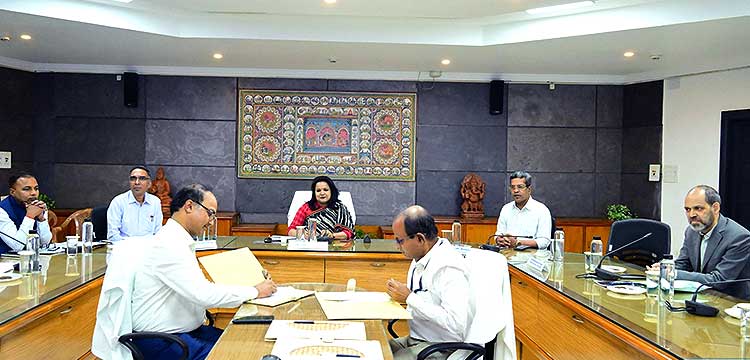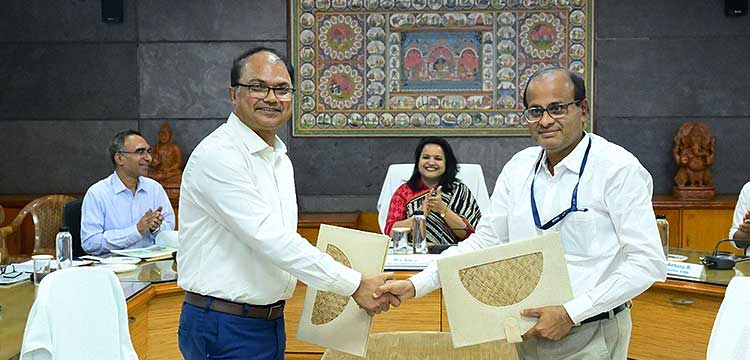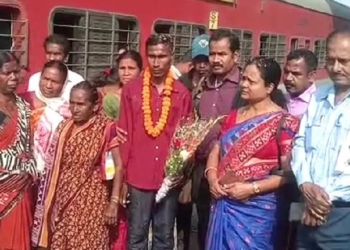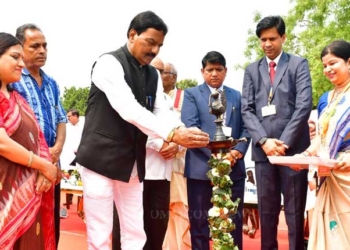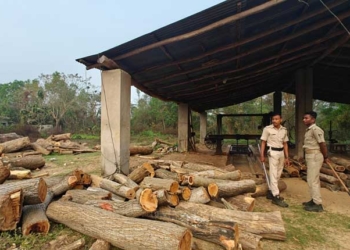Bhubaneswar: In a significant move to revolutionize irrigation and agricultural practices, the Department of Water Resources (DoWR), Odisha, has signed two Memorandums of Understanding (MoUs) with the Indian Council of Agricultural Research Indian-Institute of Water Management (ICAR-IIWM) and the Xavier Institute of Management, Bhubaneswar (XIMB).
These MoUs were inked at Rajiv Bhawan, Bhubaneswar, in the presence of Anu Garg, Development Commissioner-cum-Additional Chief Secretary, DoWR.
The first MoU, between the Director, Command Area Development and Participatory Irrigation Management (CAD-PIM) and ICAR-IIWM, focuses on implementing a pilot project in Usuma village near Cuttack. The initiative involves IoT-enabled digital water measuring and soil moisture sensing systems to optimize irrigation scheduling. The project aims to build the capacity of Pani Panchayats in adopting automated irrigation control systems, promoting efficient water use, and encouraging crop diversification in canal command areas.
The second MoU, signed between the Project Director of the Odisha Integrated Irrigation Project for Climate Resilient Agriculture (OIIPCRA) and XIMB, emphasizes Training of Trainers (ToT) programs. These will equip Pani Panchayat office bearers with necessary skills in a cascading mode, along with conducting training need assessments and performance analyses.
Suresh Kumar Vashishth, Principal Secretary Fisheries & Animal Resources Development; Director of Agriculture and Food Production Prem Chandra Choudhary, Dr Rabindra Kumar Panda, Principal Scientist, ICAR-IIWM, Bhubaneswar and Uvari Antony R., the Vice Chancellor, XIMB were present on the occasion.
Besides, other Directors and senior officers of the Departments of Water Resources; Agriculture and Farmers’ Empowerment and Fisheries & Animal Resources Development were present on the occasion.
Garg, while reviewing the progress of Sustainable Irrigation Projects in Ganjam, Mayurbhanj, Keonjhar, and Kalahandi districts, stressed the importance of collective efforts from various departments like Agriculture, Horticulture, and Fisheries to promote sustainable agriculture, crop diversification, and increased water productivity.
The innovative irrigation systems and training initiatives are complemented by plans to develop agri-tourism and aqua-tourism around successful irrigation projects. These efforts aim to provide farmers with sustainable livelihoods while creating recreational and educational opportunities for visitors.
The collaborative approach involving advanced technologies, training programs, and convergence among departments highlights Odisha’s commitment to climate-resilient and sustainable agricultural practices.




